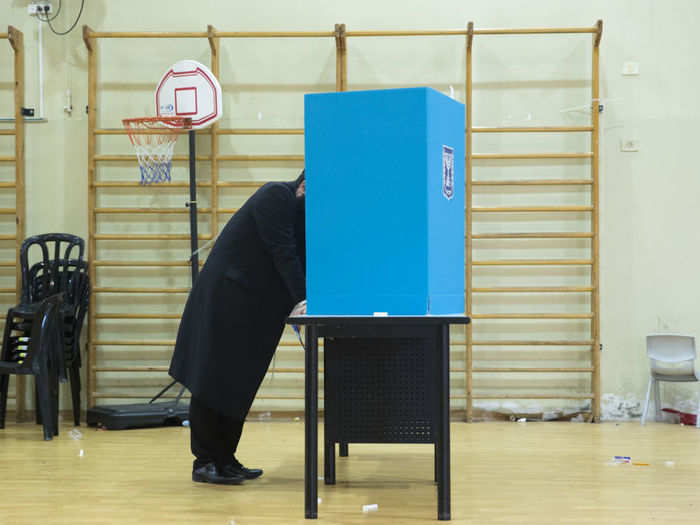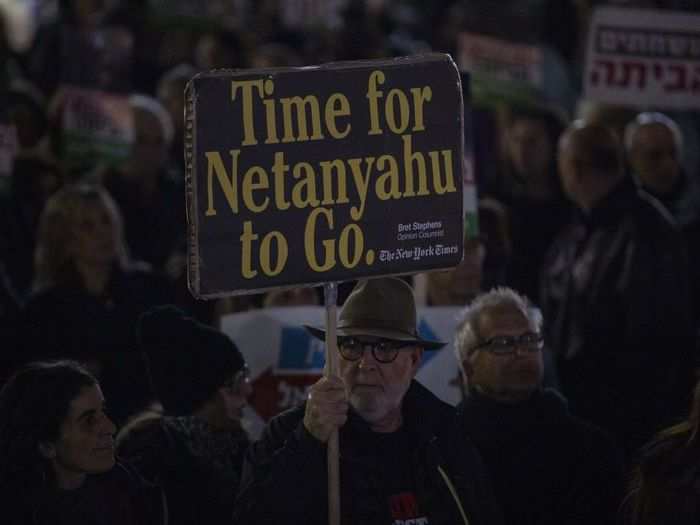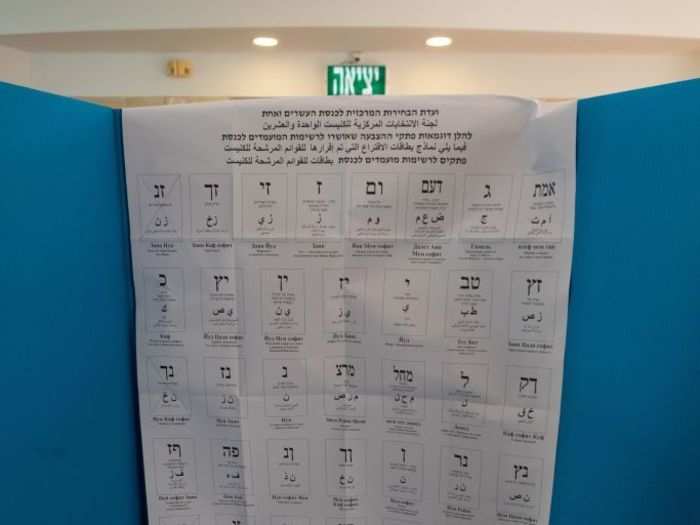- Home
- slideshows
- miscellaneous
- Israel is bracing for the final results in its most divisive election in decades - here's everything you need to know
Israel is bracing for the final results in its most divisive election in decades - here's everything you need to know
Who are the candidates?

Why is the election happening now?

While elections usually happen every four years, the country's parliamentary system makes it difficult for elected officials to maintain a governing coalition long enough to last an election cycle.
Voters are choosing from a record list of 40 parties to serve in the 120-seat Knesset.
The electoral threshold is 3.25%, which means a party needs to pass that threshold – equivalent to four Knesset seats – of the overall vote in order to gain representation in the Knesset.
It will be up to President Reuven Rivlin to select the prime minister based on which party has the best chance of forming a coalition. Rivlin will consult with leaders of parties which won Knesset seats about their preference for prime minister. After the president makes his selection, the chosen candidate has 42 days to form a coalition government through vigorous, often tense, negotiations with smaller parties.
If the selected leader can't form a coalition, another candidate will be given a chance.
Both sides have different strategies when forming a coalition: Netanyahu will likely seek the support of ultra-Orthodox and right-wing nationalist parties, as he has done in his previous government, while Gantz will likely have the support of the left-wing parties, though it's unclear at this stage if there will be enough seats on the left to win a majority.
A last, but unlikely option, would be if Netanyahu and Gantz joined together to form a unity government.
The candidates are no strangers to controversy.

While neither Netanyahu nor Gantz are strangers to controversy, this election may prove to be the most important one to Netanyahu as he faces several allegations of bribery, fraud and breach of trust.
Last month, Israel’s attorney general announced his intention to charge Netanyahu in three separate criminal cases.
Case 1,000, as it's known, concerns allegations that Netanyahu and his wife, Sara, accepted one million shekels ($276,000) in gifts from Australian billionaire James Packer and Hollywood producer Arnon Milchan.
Case 2,000 accuses Netanyahu of trying to broker a deal with Arnon Mozes, publisher of Israeli daily Yediot Aharonot, for favorable coverage in exchange for government limits on the circulation of a rival publication.
Case 4,000 concerns accuses Netanyahu of granting regulatory benefits to Bezeq, one of Israel's leading telecommunications companies, in exchange for positive coverage on a Bezeq-owned news site called Walla.
Observers say Netanyahu may be hoping a win could help him in the eyes of the law. There is also a chance he could pass a law in the future that would essentially protect him from standing trial.
An Israeli watchdog group last week also found a network of hundreds of social media bots working to boost Netanyahu on social media, though Israeli researchers at Ben Gurion University said the data does not prove a coordinated effort to influence election results.
Gantz has also defended himself from scandal in the past.
In February, an Israeli-American woman named Navarone Jacobs acccused Gantz of exposing himself to her 40 years ago when she was 14 years old. Gantz strongly denied the allegations and filed a half million shekel lawsuit against the woman for claims he called "blood libel."
Gantz also chaired a security and tech company called The Fifth Dimension, which shut down after one of its key financial backers, a Russian oligarch named Viktor Vekselberg, who was sanctioned by the US in 2018.
Who is likely to win?

With 80% of the vote tallied as of early Wednesday, both sides have declared victory, and exit polls show them relatively tied.
Israel's Channel 12, Channel 13 and the Times of Israel put Netanyahu slightly ahead, and said he could have an advantage in building his coalition with ultra-Orthodox and right-wing parties which appear to have won several Knesset seats.
Final results are expected by Friday.
Popular Right Now
Popular Keywords
Advertisement